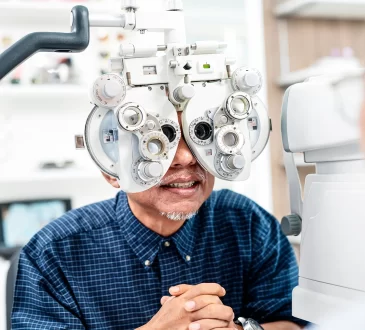
Living with nerve trigeminal neuralgia isn’t just about managing pain. It’s about surviving through the mental and emotional toll that comes with it. If you’ve been jolted awake by the sharp sting of facial pain or hesitated before brushing your teeth for fear of triggering an attack, you already know how unpredictable and exhausting this condition can be. And when stress creeps in, that’s when things can spiral.
Stress doesn’t cause trigeminal neuralgia. When your body’s under emotional strain, it reacts—and not in ways that make your life any easier. It’s putting pressure on your already irritated trigeminal nerve, making your pain sharper, more frequent, and harder to manage. Understanding the role stress plays is essential to finding the right facial nerve pain treatment that works for your needs.
Stress Feeds the Fire—Here’s What’s Really Happening
When you’re stressed, your body flips a switch. Heart rate spikes. Muscles tighten. Your whole system kicks into survival mode. This fight-or-flight response might’ve helped your ancestors outrun danger. But for you, it’s amplifying every twinge, every flare-up, and dragging out symptoms you thought were easing.
You might notice a pattern too. The more anxious or tense you feel, the more likely your symptoms flare up. And if you’ve been searching for answers, chances are you’ve already looked into trigeminal nerve disorder symptoms and their connection to mental stress.
Caught in a Loop: When Pain Fuels Stress and Stress Fuels Pain
Pain stresses you out. But stress worsens the pain. It’s a loop you never asked for, and one that feels impossible to break.
You might start to fear everyday moments—washing your face, smiling, talking on the phone. That constant bracing, that waiting-for-it feeling, creates anxiety that lingers even when the pain stops. Your body doesn’t get a break. It stays tense, reactive, always on edge.
That’s where emotional health takes a hit. Depression and anxiety aren’t just side effects of trigeminal neuralgia. They’re part of the condition’s impact. And as your mental health takes a dive, your nervous system follows. It’s a vicious cycle. But there’s a way out.
Let’s Talk About Sleep (Because You Probably Aren’t Getting Enough)
When you’re not sleeping well, everything feels worse. Pain, mood, focus—it’s all connected. You might find yourself waking up in the middle of the night, jaw clenched, already dreading the next shock of pain. And that poor sleep only increases your body’s stress hormones, making nerve sensitivity even worse.
This isn’t something to brush off. If your nights are restless and your mornings start with anxiety, your system never gets the downtime it desperately needs. Over time, this can fuel more frequent—and more intense—flare-ups. For those battling nerve trigeminal neuralgia, these compounded stressors make pain management even more challenging.
But here’s the truth: you can reclaim rest. And with it, a sense of calm you’ve probably been missing.
You Can’t Eliminate Stress, But You Can Learn to Calm It
Stress is part of life. But when you have trigeminal neuralgia, learning to manage stress isn’t just self-care. It’s pain management. The good news? There are tools that can help. And no, they don’t have to be complicated or time-consuming.
Start with something simple: breathing.
Slow, deep breathing signals your nervous system to dial things down. Even just five minutes a day can begin rewiring your stress response. Over time, you’ll notice how much calmer you feel, even when pain does strike.
Then there’s mindfulness. You’ve probably heard of it, maybe even rolled your eyes at the idea. But it’s more than a buzzword. It’s a skill. One that helps you stay grounded when your body wants to panic. With regular practice, mindfulness can reduce anxiety, boost emotional control, and ease your relationship with pain.
Don’t Underestimate What Daily Habits Can Do
There’s power in your routine. What you eat, how you move, and when you rest all make a difference.
Start with movement. A short walk, gentle stretching, or even low-impact yoga can reset your mood and relieve physical tension, especially around your neck, shoulders, and jaw.
Next, think about your plate. Foods rich in magnesium, omega-3s, and B-vitamins support nerve function and reduce inflammation. On the flip side, sugar and caffeine can spike stress levels and throw your system out of balance. Swap them out when you can. Your nerves will thank you.
And then—sleep. Create a night-time routine that tells your body it’s time to relax. Dim the lights. Shut off screens early. Use a warm compress if your facial muscles are tight. The more you treat rest as sacred, the more your body will respond.
When Lifestyle Isn’t Enough, You’ve Got Options
You’ve tried the deep breathing. You’ve cleaned up your diet. You’re stretching every day. But the pain still keeps showing up.
That’s not failure. It’s just your cue to reach out.
Sometimes, you need a specialist. Someone who’s seen this before and can guide you with a clear plan. A neurologist for facial nerve conditions will understand the deeper causes of your pain and how stress feeds into it. With the right diagnosis, the right medication, and the right strategy, relief becomes possible—sometimes faster than you’d expect.
Therapies That Heal More Than Just the Nerve
Medication has its place, but sometimes healing needs to go deeper. That’s where complementary therapies come in.
Acupuncture, cognitive behavioural therapy, and guided visualisation aren’t just “extras.” They’re evidence-backed tools that help you relax your nervous system and gain a sense of control again.
CBT in particular can be life-changing. By addressing the fear and anxiety around your condition, it rewires how you respond to pain.
Even support groups—whether online or in person—offer unexpected comfort. Just knowing you’re not alone, that someone else understands what you’re going through, can ease emotional tension and create space for healing.
If you’re looking for non-surgical trigeminal neuralgia therapy, these approaches might form part of a broader plan that lets you manage symptoms without invasive procedures.
Guard Your Energy. You Deserve Peace
You don’t owe the world your energy when you’re in pain. Yet overstimulation is everywhere: loud environments, glaring lights, screen overload. All of it strains your senses and pushes your nervous system past its limit.
Create a space that feels calm. Use noise-cancelling headphones if sounds trigger your pain. Dim the lights. Take breaks when you need them, especially in high-stress environments like work or social gatherings.
You’re Stronger Than Your Pain. Even on the Hard Days
Living with nerve trigeminal neuralgia can feel relentless. Some days, the pain might steal your words. Other days, it might steal your confidence. But here’s what it can’t take: your ability to respond.
Stress might feed the pain. But calm weakens it.
Just start where you are. Pick one thing. Then another. Over time, these small choices build resilience. And that resilience is how you take your power back.



